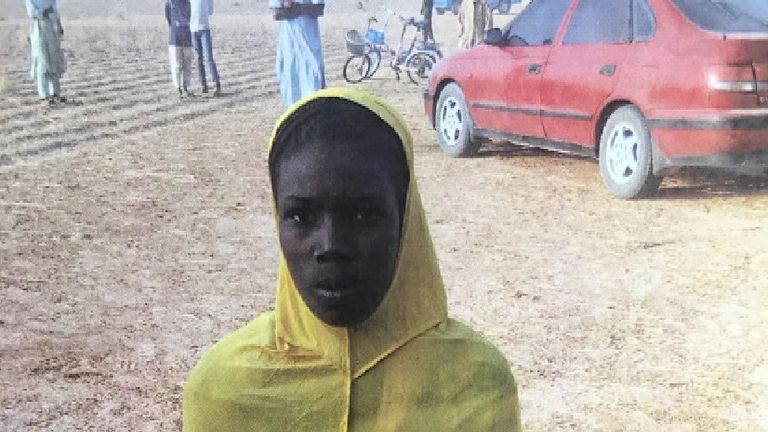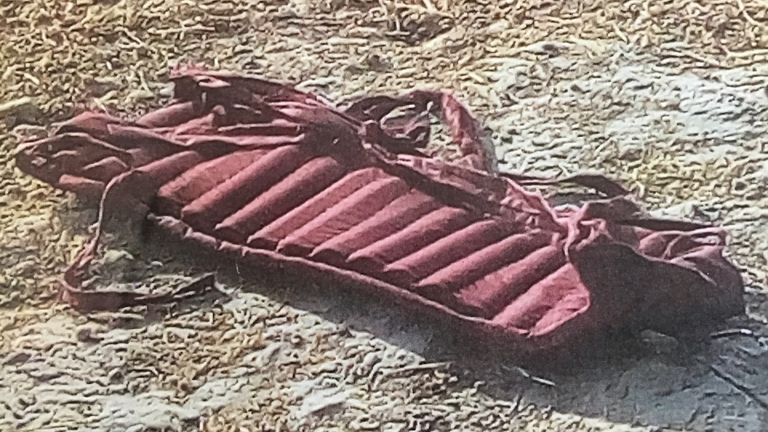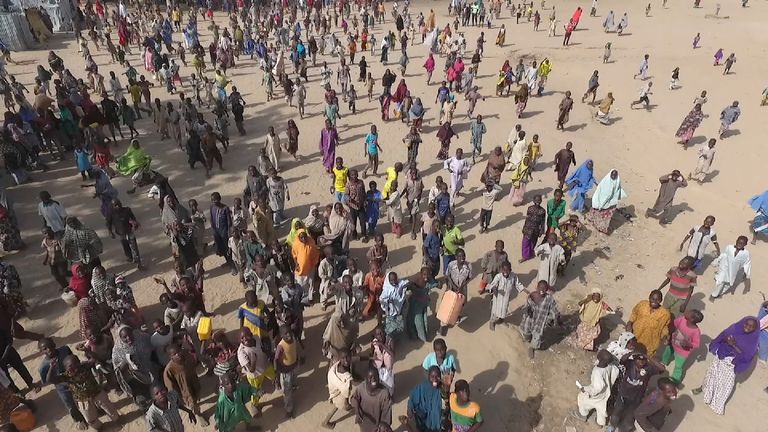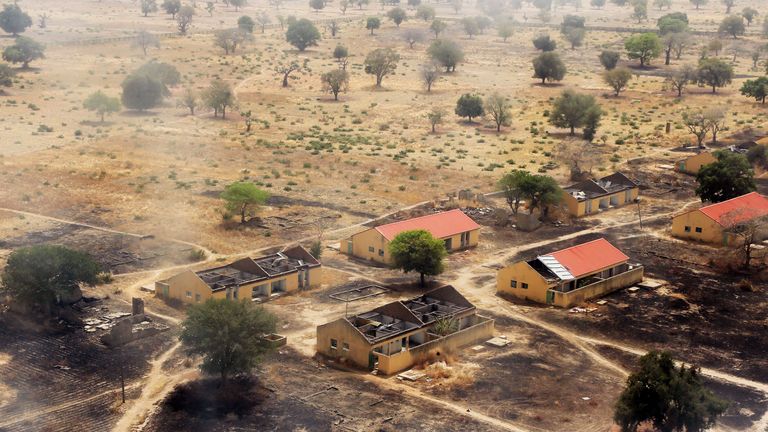Boko Haram teen bride paid 40p for suicide bombing in northern Nigeria
Rare footage obtained by Sky News shows the moment police confront a 14-year-old girl used by militants in a bomb attack attempt.
Wednesday 8 March 2017 07:55, UK
Sky News has obtained rare footage of a female suicide bomber captured in northern Nigeria - indicating a change of tactics by the Boko Haram militant insurgency aligned to Islamic State.
The militants have used a string of young women recently to detonate their explosives in the northeast of Africa's most populous nation.
In the footage, the would-be suicide bomber fingers the tassels of her hijab while telling the Nigerian soldiers and police who have arrested her that she was paid just 200 Naira (about 40p) to detonate her suicide vest in a "crowded place" in the centre of Maiduguri.
The 14-year-old explained she and her fellow bomber had worn their explosives for three days before summoning the courage to venture into the centre of town.
They were spotted acting suspiciously and the captured young woman ripped her suicide vest off after being commanded to by police. Her companion was shot dead after apparently refusing to.
The commander leading the Nigerian military's theatre operations against Boko Haram extremists told us he believes the tactic was a sign of the group's increasing desperation.
Major General Lucky Irabor said: "These are very unfortunate children, little girls, who have been involved, who have been engaged to be the couriers of these dastardly acts of the Boko Haram terrorists so, in my view it's a sheer act of desperation."
The UN Security Council has declared the crisis, which has spread from north Nigeria and into Cameroon, Chad and Niger, as one of "global concern".
The UN estimates the eight-year insurgency has cost Nigeria alone a staggering $9bn (£7.4bn).
Matthew Rycroft, UK ambassador to the UN, has just returned from a trip to north Nigeria where he visited Maiduguri and called for an urgent response from the international community.
"What is needed is long-term development," Mr Rycroft said as he described the events in northeast Nigeria and the Lake Chad basin region as the world's largest and most neglected humanitarian crisis.
Sky News witnessed huge camps in northeast Nigeria where millions of displaced people have fled to escape Boko Haram.
We tracked down several young women who had been coerced into violent "marriages" with Boko Haram fighters. They spoke of being repeatedly raped and beaten, and several had babies as a result of the sexual violence.
Rabi Ali, 17, told us how they had managed to escape the clutches of Boko Haram, only to find themselves shunned by the wider Nigerian community, with many treated as outcasts.
She said: "Everybody knows our husbands were into killings and now they feel that if they should stay in the same area with us, we'll one day rise up and kill them."
Saratu Uma, 18, told us: "Anywhere we stay, they (the community) just says 'get away, move away from us Boko Haram wife. Move away from us Boko Haram daughter.'"
Two of the girls we spoke to said they had been held in the Sambisa Forest alongside the Chibok schoolgirls.
Nearly 300 schoolgirls from the town of Chibok were kidnapped by Boko Haram almost three years ago as they slept in their dormitories waiting to sit their final exams.
The incident sparked worldwide horror, with Michelle Obama tweeting her support for the #BringBackOurGirls campaign to find them.
Some 195 girls are still missing and their families are continuing to press the Nigerian government to track them down and rescue them.
Rabi Ali said: "We sat on the same mat as them when we went for prayers. They were all kept in one big house."
She said some of the Chibok girls had also had babies as a result of their confinement with Boko Haram.
The militants' legacy not only extends into the next generation but has affected the ability to farm and grow crops. There are dire predictions of an imminent famine and starvation as drought compounds the already unstable ground conditions.








